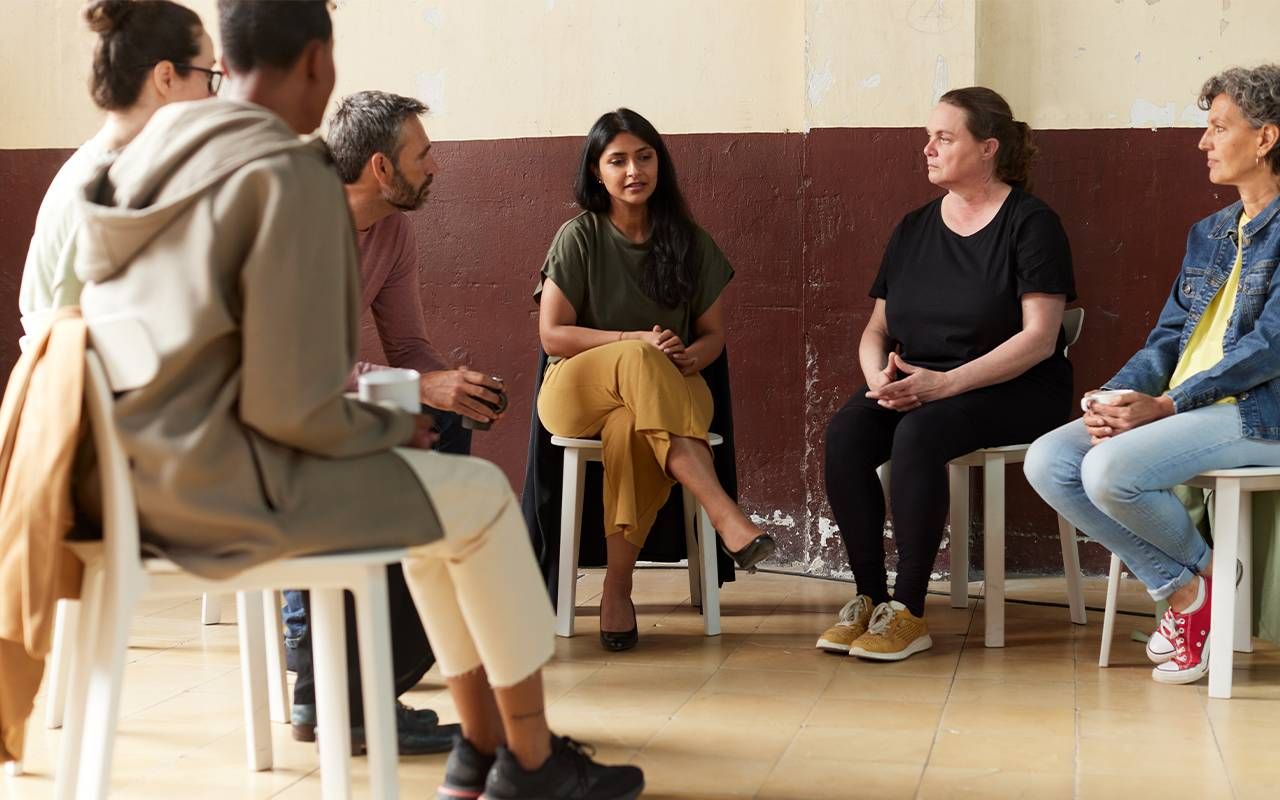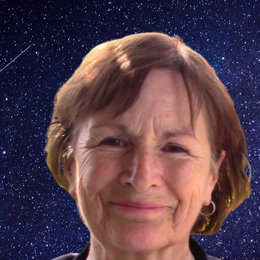9 Empowering Activities I Embraced During My First Year of Widowhood
New routines, self-care and surrounding myself with positive people are just a few examples of what's helped me
Nothing scared me more than the thought of losing my dear husband, Claude. I couldn't imagine living without him. Then, in May 2022, I became a widow. In addition to the shock of loss and the soul-crushing grief I experienced, I felt lost. The life my husband and I shared was gone in an instant.

I could no longer look forward to small talk with him each day, laugh with him, watch hummingbirds in the backyard together or feel the comfort of his hand holding mine during walks around the neighborhood. Our shared hopes and dreams for the future no longer existed. I was unsure if I wanted to or could move forward without the love of my life.
Widowhood represents one of the most challenging life transitions any of us may face.
Widowhood represents one of the most challenging life transitions any of us may face. Yet, each of us has the power to move forward. As my sister, Pamela, advised, "Don't be afraid of changes in your life. Life is a series of changes, and you can and will adapt."
Recognizing my sister's sage advice, I intentionally began practicing nine evidence-based empowerment activities during my first year of widowhood that are helping me adapt and move forward.
Evidence Based Activities for Widows and Widowers
Even though literature suggests widows and widowers often deal with losing a spouse differently, the empowerment activities that continue to help me may also benefit widowers. For example, while widows are more likely to seek communities of support than widowers, The National Widowers Organization reports that many men may benefit from widower support groups. Some studies also reveal that widowers may experience more significant depression. However, evidence suggests a few of the activities I am sharing can help with depression in addition to supporting adaptation and growth.
My hope is that all of us who experience widowhood will find ways to adapt and move forward. Here are the 9 activities that have helped me:
Finding a Support Group: A few months after becoming a widow, I joined an online widows' support group. I currently co-moderate this group. We encourage each other, ask questions, suggest resources and provide helpful advice. Members of this group truly 'get' what it is like to lose a spouse. I also spend time with other widows in my community. Connecting with widows has helped me feel more empowered as we encourage and support each other.
Many of my daily routines revolved around my late husband's needs until he passed. After he was gone, I initially felt aimless.
Focusing on Self-Care: Because I was a part-time and sometimes a full-time caregiver for my husband during his final 17 months, I tended to neglect my own health. After Claude passed, I realized I was physically and emotionally drained. So that I could move forward, I continued to eat a healthy diet, started varying my daily exercise routine, chose to limit any alcohol consumption, and made sure I was getting sufficient sleep. I also made a long overdue appointment with my health care provider. I am now feeling more energetic and healthier again.
Developing New Routines: Many of my daily routines revolved around my late husband's needs until he passed. After he was gone, I initially felt aimless. Because I was retired, I needed to create some new routines for my own benefit. In addition to the necessary or practical habits I continued, I added 10 minutes of standing yoga to my daily routine; this short daily practice helps me feel more confident by improving my flexibility and balance. I also started practicing my flute again for the first time in 50 years because it pleases me.
Learning New Skills: Self-reliance is associated with resilience and feelings of empowerment. Some of the new skills I forced myself to learn during my first year of widowhood included using a skill saw and other tools for home repairs, fixing sprinkler system leaks and preparing my taxes. I have also learned that occasionally asking for help from others when needed does not diminish my sense of self-reliance. I am now feeling more confident about the future.
Surrounding myself with positive people also encourages me to maintain a positive attitude and good mental health.
Processing Grief through Journaling: I started a grief journal shortly after my husband passed; this type of journaling helped me process my feelings. Then, instead of grief journaling, I started writing to Claude as a substitute for our daily "small talk" conversations. I love telling him how I've kept up the yardwork and how beautiful it looks. In my mind, I can see my dear late husband smiling and imagine him saying, "It looks great, Paula. I'm proud of you."
Connecting with Positive People: I regularly get together with old and new friends. One thing they all have in common is that they each maintain a positive outlook on life. Surrounding myself with positive people also encourages me to maintain a positive attitude and good mental health.
Practicing Gratitude: I am learning to regularly express gratitude for the 25 years Claude and I spent together. As a Mayo Clinic article explains, expressing gratitude can help lift our moods, improve our sleep, decrease depression and anxiety and reduce the risk of disease.
Moving forward doesn't mean forgetting the ones we have lost.
Honoring a Legacy: As an educator and coach, husband, parent, and grandparent, Claude influenced and inspired a lot of people. Toward the end of his life, he repeated the lessons and stories he wanted us to all remember. Every person he touched is part of his legacy. Because of his influence on my life, I am also part of his legacy and feel empowered to serve as one of his legacy keepers. I am motivated to do whatever I can to ensure that future generations know his name and how he helped make the world a better place. I am also more aware of the legacy I want to leave when I'm gone.
Recognizing a Greater Purpose: I regularly talk with my sister-in-law, Winnie. Even though she has lost close family members and two husbands, she is one of the most positive people I know. She reminded me that life gives us opportunities to grow and to use what we learn to help others.
Moving Forward But Not Forgetting
I am thankful for how my sister-in-law encouraged and helped me when I became a widow. Now I want to do for others what Winnie has done for me. Using what I have learned to help others has given me a renewed sense of purpose as I move forward.
I believe all of us can learn to adapt and move forward in widowhood. Certain intentional activities or practices may help us on our journey. However, moving forward doesn't mean forgetting the ones we have lost.
While many of the widows and widowers I've spoken with have built new lives, I believe all of them continue to hold a place in their hearts for the spouses they have lost. As for me, I will always carry Claude's influence in my heart, no matter what the future brings.


